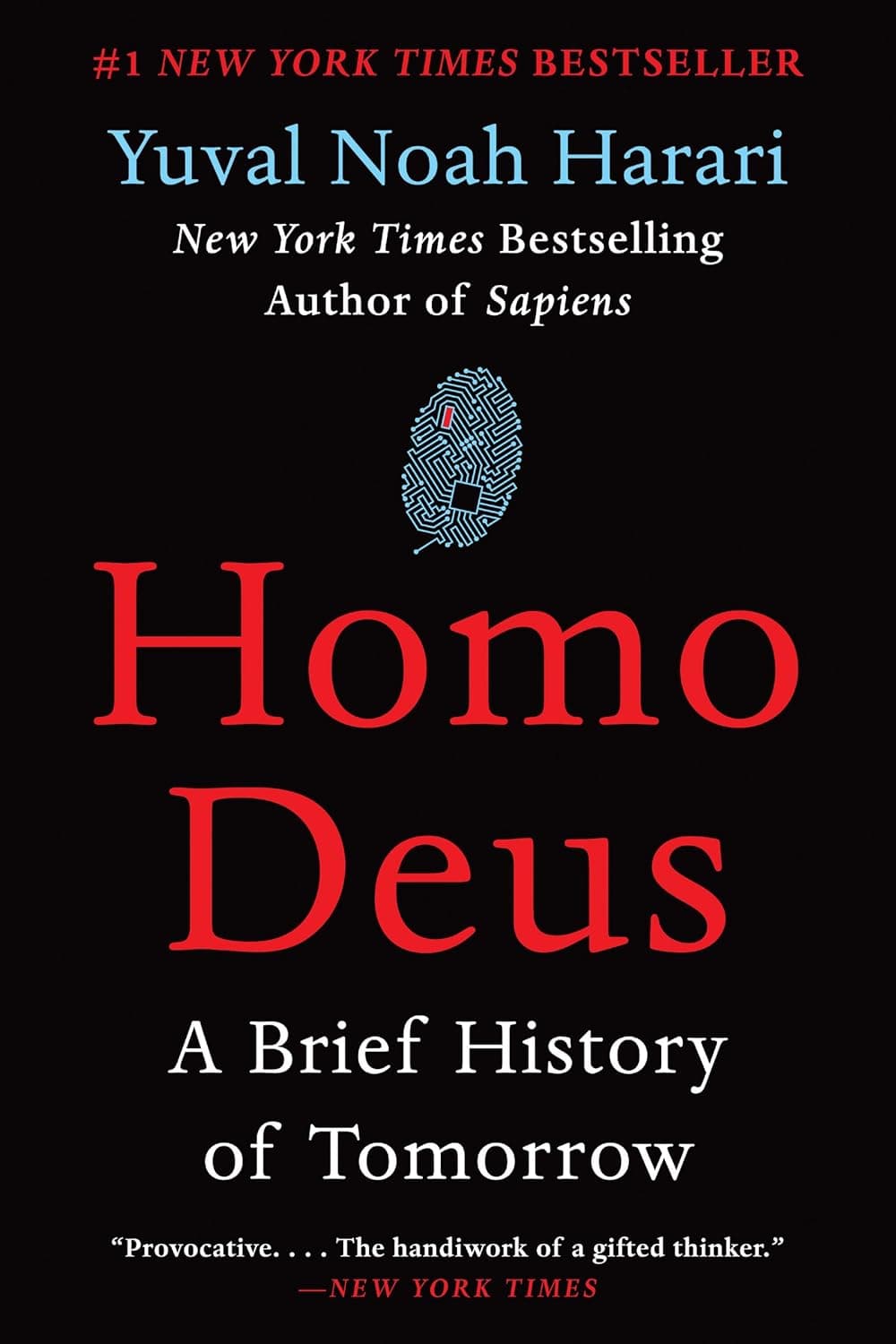
Review summary
This spoiler free review of Homo Deus by Yuval Noah Harari walks through why this narrative nonfiction book that a brief history of tomorrow review still hooks readers. Homo Deus surveys humanity’s potential futures, from algorithmic governance to bioengineered elites, with accessible big picture analysis.
Full review
This review of Homo Deus looks at how Yuval Noah Harari turns from the past to the future: the book explores possible paths for humanity, from data driven decision making to bioengineered elites and new conceptions of religion and meaning.
Harari organises the book around emerging "religions" of data, biotechnology, and algorithms. Concepts like dataism, artificial intelligence, and genetic engineering are introduced in accessible language before he pushes them toward sharp ethical questions and thought experiments.
The narrative dips into capitalism, neuroscience, religion, and computer science, linking them into a single, very readable argument. Readers who have already explored human history in our Sapiens review will find Homo Deus a natural follow up focused on what might come next.
If you are curious about the future of humanity, you can add Homo Deus to your Amazon list and use it as a starting point for conversations about AI, biotechnology, and the limits of humanism.
Homo Deus Review Highlights
Explains ideas like dataism, techno humanism, and algorithmic governance in straightforward terms.
Connects biotechnology, artificial intelligence, and ethics into one continuous, accessible argument.
Offers speculative scenarios that ask readers to think about what kind of future they actually want.
Who Should Read Homo Deus
Nonfiction fans who enjoy tech, philosophy, and big picture thinking about society.
Readers interested in futurism, ethics, and the social impact of AI and biotech.
Book clubs ready to debate utopian and dystopian possibilities for the coming decades.
Homo Deus Study Prompts
Choose one of Harari's future scenarios and discuss how realistic it feels based on current news.
Track how the book defines humanism, techno humanism, and dataism, and what each view values most.
Research recent developments in AI or genetic engineering and compare them with the book's predictions.
Key ideas
- Data driven decision making could reshape politics, economics, and personal identity.
- Technological progress raises difficult questions about inequality, surveillance, freedom, and responsibility.
- Thinking about the future works best when history, philosophy, and science are considered together.
If you liked this, read next
FAQ
- What is Homo Deus about?
- Homo Deus explores possible futures for humanity, from algorithmic governance and data faiths to bioengineered elites and changing ideas of religion. Homo Deus by Yuval Noah Harari is non fiction and popular science that aims to make complex topics about the future easier to talk about.
- Who will enjoy Homo Deus?
- Readers drawn to Non Fiction, Popular Science, and technology and society debates will enjoy Homo Deus. It suits curious readers who like big questions more than technical detail or equations.
- What themes stand out in Homo Deus?
- Important themes include the rise of data driven worldviews, the potential concentration of power through biotech and AI, and the possibility that traditional humanist values may be challenged. The book invites readers to think about what they would accept or resist in different futures.
- Is there anything to know before starting Homo Deus?
- It helps to be comfortable with big picture speculation and to accept that some predictions will age quickly as technology moves. Reading a chapter or two from Sapiens first can provide useful context for Harari's way of framing history and progress.
Reader-focused angles
This review intentionally answers longer questions readers often ask, such as homo deus by yuval noah harari overview and key ideas about the future of humanity, homo deus reading level, age recommendation and who will enjoy this book, books like homo deus for readers interested in futurism and big picture non fiction, and homo deus main arguments, themes and topics to debate, so the guidance fits naturally into the analysis instead of living in a keyword list.
Each section of the review is written to speak directly to those searches, making it easier for book clubs, educators, and new readers to find the specific perspectives they need.
Reading guide
- Outline each major future path the book describes and note both the potential benefits and the risks.
- Compare Harari's arguments with current policy debates on AI regulation, privacy, and biotechnology.
- Read Homo Deus alongside Sapiens to see how Harari connects past, present, and possible futures.
As an Amazon Associate, I earn from qualifying purchases.